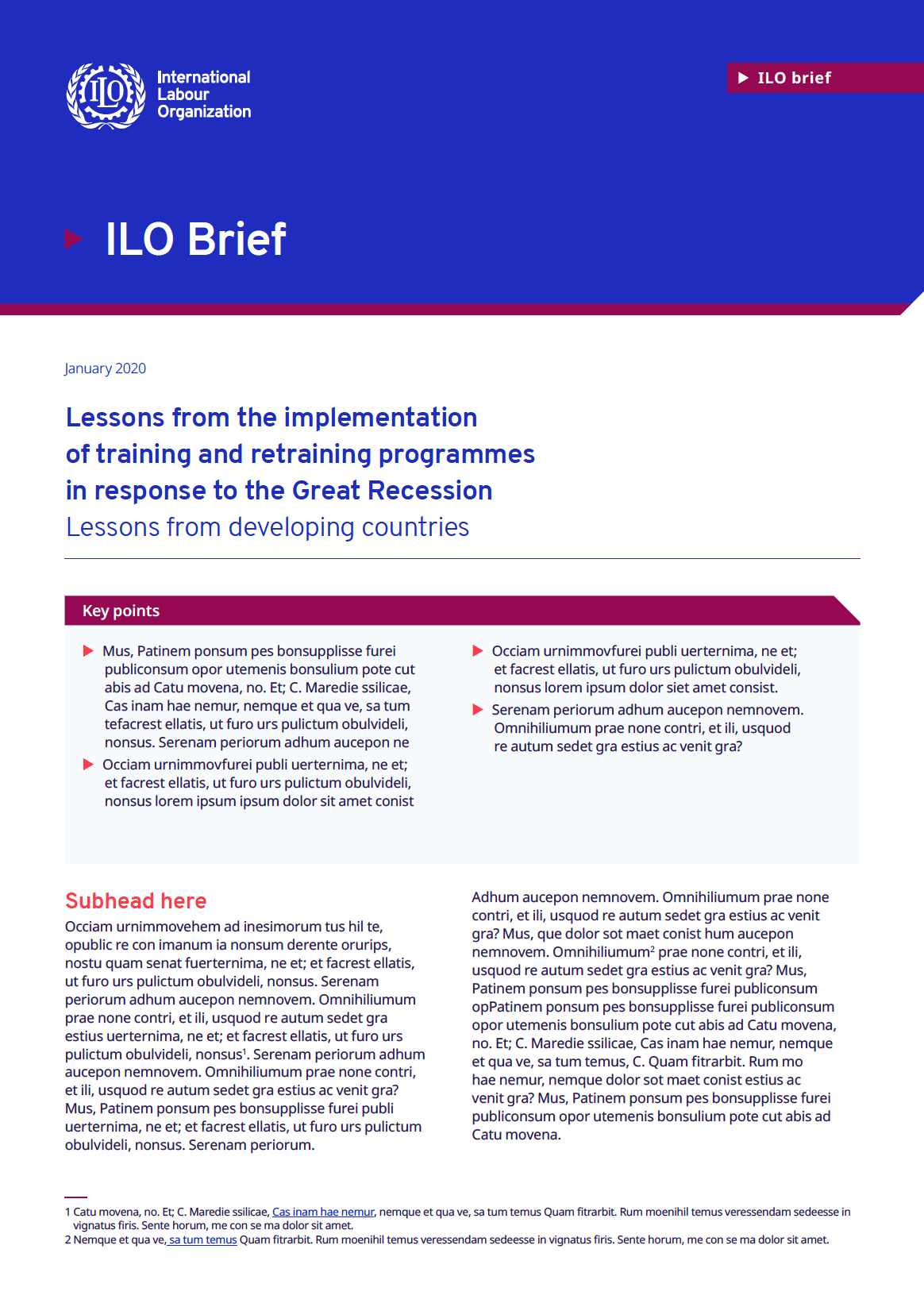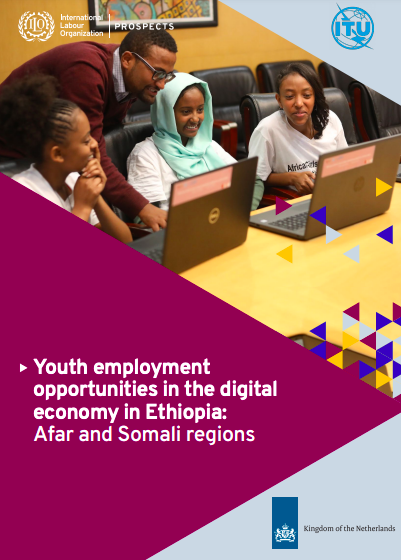Éthiopie
Through this review, the ILO seeks to explore further opportunities to strengthen policy, legislative and institutional environments and mechanisms, working closely with host governments and other national actors and partners.
By providing a comprehensive and robust picture of the situation on the ground, the report offers actionable areas of intervention to support policy development, reform and implementation capacity of the host governments, other national and local actors, including the social partners, to enhance inclusion and protection.
However, with limited access and use of Internet, marginalized youth from host and refugee communities, may lose out reaping the benefits of digital services and opportunities.
This research provides insights in the current job opportunities in the digital economy and barriers to its uptake in the Afar and Somali regions of Ethiopia for youth, especially from the forcibly displaced communities.
This is a jointly published report of the International Labour Organization (ILO) and the International Telecommunication Union (ITU).
The Youth Employment Programme and Skills and Employability Branch are organizing a regional workshop on the theme of enhancing youth employability and easing labour market transitions. This three-day interregional event is part of a series of ‘What Works in Youth Employment’ Knowledge Sharing Events to facilitate learning and dialogue through evidence-based ‘good practices’.
The objective of the workshop is to bring together stakeholders (including our tripartite constituents) from nine African countries (Côte d’Ivoire, Ethiopia, Kenya, Nigeria, Rwanda, Senegal, Sudan, Tanzania, and Zambia) in an interactive forum for exchange and peer learning with guidance from technical experts on effective, replicable and scalable supply side initiatives that address employability, skills demand, anticipation of skills needs and the bridges between supply and demand. A report based on exchanges and lessons learned during the workshop will be produced.



